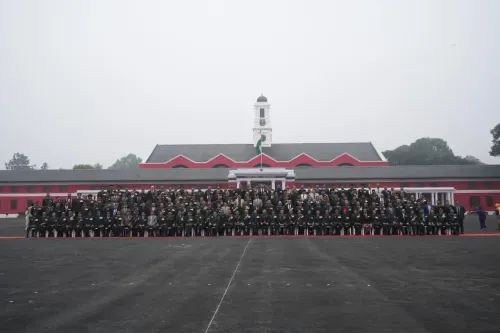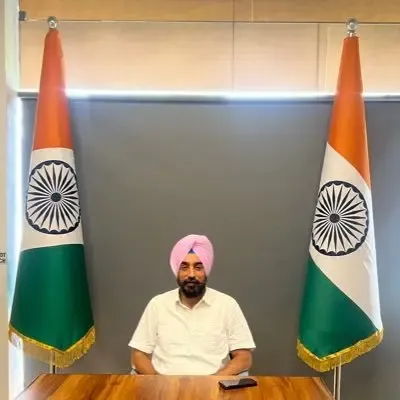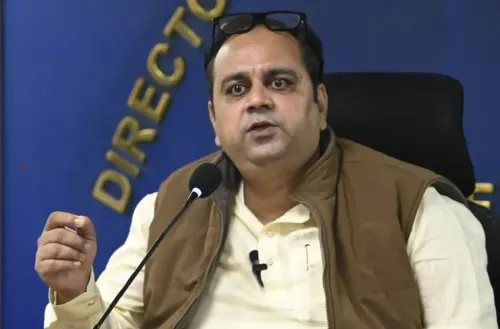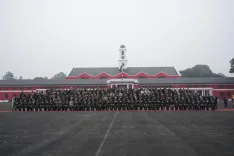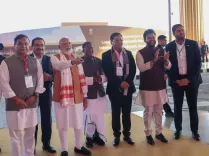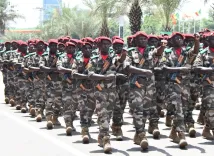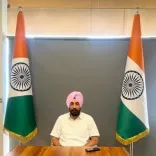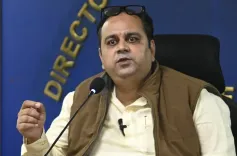How Did Central Asian Countries Support India After the Pahalgam Terror Attack?
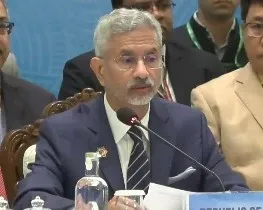
Synopsis
Key Takeaways
- Central Asian countries expressed solidarity with India after the Pahalgam attack.
- The India-Central Asia Dialogue is crucial for strengthening ties.
- Historical ties have evolved into a partnership defined by mutual goals.
- India is a trusted development partner for Central Asian nations.
- Emphasis on cooperation in technology and security sectors.
New Delhi, June 6 (NationPress) External Affairs Minister (EAM) S. Jaishankar on Friday conveyed his gratitude for the unwavering support extended by Central Asian nations in denouncing the terrible terrorist attack that occurred in Pahalgam on April 22. "I commend your nations for standing alongside India and condemning the atrocious act that transpired in April in Pahalgam," said the EAM during his introductory remarks at the 4th India-Central Asia Dialogue in New Delhi.
Participating in the dialogue were Kazakhstan's Deputy Prime Minister and Foreign Minister Murat Nurtleu, Tajikistan Foreign Minister Sirojiddin Muhriddin, Turkmenistan Foreign Minister Rashid Meredov, Kyrgyzstan Foreign Minister Zheenbek Kulubaev, and Uzbekistan Foreign Minister Bakhtiyor Saidov.
During the session, EAM Jaishankar emphasized that India holds in high regard its ancient civilizational and cultural connections with Central Asia.
"These historic ties, established through trade, idea exchange, and interpersonal contacts, have strengthened over time, evolving into a partnership characterized by common aspirations, opportunities, and challenges," he remarked.
The EAM noted that India's collaboration with Central Asian nations received a "quantum boost" following Prime Minister Narendra Modi's series of visits to all five Central Asian capitals in July 2015.
“We celebrated three decades of our modern diplomatic relations with our Central Asian partners in 2022. Together, we have established a legal and institutional framework that lays the groundwork for our mutually beneficial cooperation, both individually and collectively,” he stated.
He highlighted that India continues to be a trusted development partner for all Central Asian nations, noting that trade, economic, and investment ties have significantly strengthened over the past decade.
“In addition to the Indian Technical and Economic Cooperation (ITEC) training slots and Indian Council for Cultural Relations (ICCR) scholarships, which are well-known aspects of our development partnership, we have also begun to implement High Impact Community Development projects as Indian grants aimed at socio-economic advancement,” the EAM mentioned.
Addressing the productive discussions from the India Central Asia Business Council meeting held on Thursday, Jaishankar indicated that it aimed to eliminate obstacles and enhance cooperation in digital technology, fintech, inter-bank relations, and other areas, which will enable both India and Central Asia to unlock their full economic potential.
“Both India and our Central Asian partners are dedicated to fostering mutually beneficial cooperation across all sectors, particularly in trade and investment, defense, agro-processing, textiles, pharmaceuticals, regional connectivity, security, education, culture, people-to-people exchanges, as well as new and emerging technologies,” he asserted.
The India-Central Asia Dialogue, initiated in January 2019 in Samarkand, serves as a vital platform for enhancing relations between India and Central Asia. The second meeting occurred virtually in October 2020, focusing on regional security, counter-terrorism, and infrastructure development. The third meeting took place in New Delhi in December 2021, emphasizing connectivity to deepen ties between India and Central Asia.


